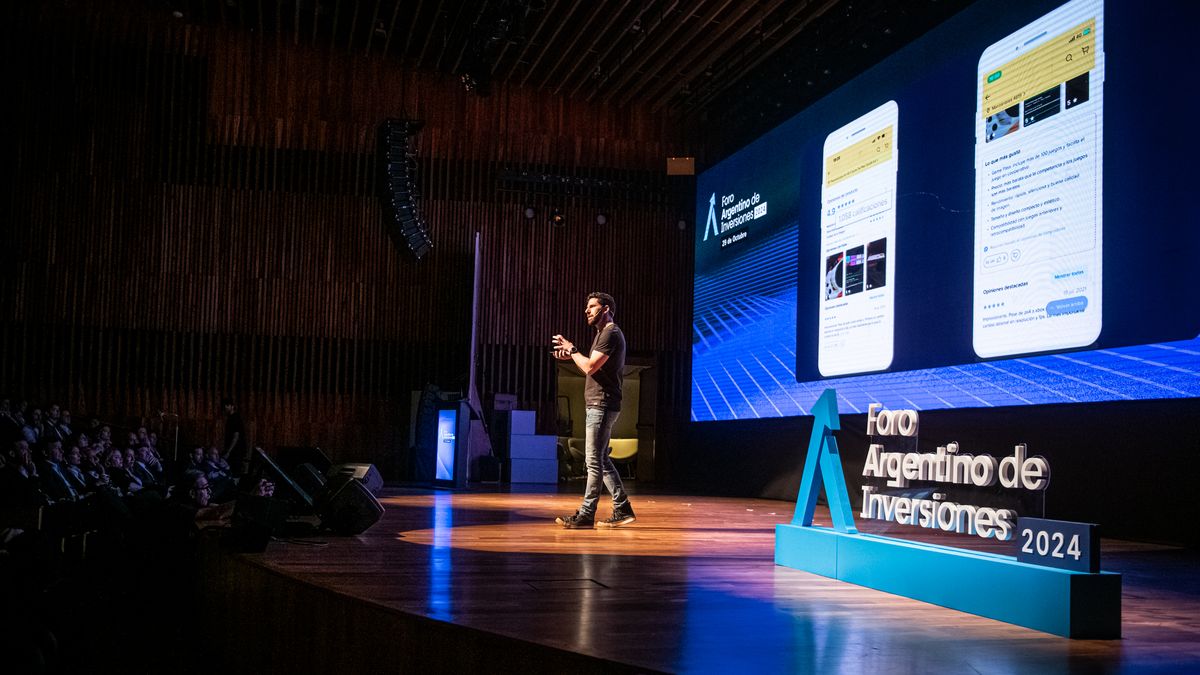“Argentina It is not going to be the first destination for investments in Latin Americanor will it be an essential country in the region as is the case with Mexico and Brazil. It is even to be expected that in the first stage there is capital outflow before new inflows”.
The phrase was formulated by Ramiro Lauzan, director of the L Catterton investment fund, during a panel of experts that analyzed the situation in Argentina regarding the investment panorama in Latin America.
It was this morning during the opening of the Argentine Investment Forum 2024organized by the Argentine Association of Private Capital, Entrepreneurship and Seed (ARCAP) and the Argentine Investment and International Trade Agency.
The meeting takes place at the Palacio Libertad (former CCK) and brings together more than 500 global experts to analyze perspectives and opportunities for investment and acceleration in industries, projects and talents in the country.
The comments of the director of L Catterton were consistent with the rest of the panelists regarding the optimistic situation that Argentina is going through due to the change in economic expectations, but warns about some doubts that still persist among international investors due to previous bad experiences in the country.
It looks at the mass consumption market
L Catterton is a fund that specializes in the mass consumption sectors, a segment in which it is the largest investor worldwide. It has a global portfolio of US$35,000 million, of which US$1,500 is in Latin America.
In Argentina, two of its most relevant investments were made in the wine sector: wineries Luigi Bosca and Susana Balbo.
Lauzan highlighted that the fund has a positive view on Latin America’s prospects for several reasons. First, he highlighted that it is a region with a population of 660 million inhabitants, mostly young people and with a growing level of education, with an affinity for technology.
He then mentioned that the macroeconomy is giving positive signs, with more consistent public policies, low inflation and a tendency towards fiscal balance.
Thirdly, he said that an attraction of the region for investors is that “there is a shortage of capital and there is a demand from family businesses that“They are going through a natural cycle in which they need to incorporate partners and add capital.”
In this framework, he referred to the fact that the two countries “essential” in the region they are Mexico and Brazil. And he highlighted that Argentina still is not in condition to join that group and that it is possible to expect an outflow of capital from the country before an income. In any case, he clarified that “It is not something to be alarmed about, since this is part of a natural investment recycling process” in stages like the one he is experiencing today.
Latin America as a new hub for technology companies
For José Sosa del Valle, of Lexington Partners, Latin America currently represents 1.5% of global private capital. And he stressed that “there is dynamism in the region”, specifying that “from 2019 to the present of the 400 deals that were completed, 96%” corresponded to venture capital operations.
“Latam became a hub for high-value technology companies and that trend continues”he concluded.
Meanwhile, Horacio Reyser, from the Ventus fund, highlighted that “in Argentina there is a change in expectations and needs urgent changes to consolidate because doubt persists among investors about whether these changes can be sustained over time.”
And he said that to achieve that “a structural change is needed that sustains good macro performance, moving towards a competitiveness agenda that allows production costs to be lowered to be able to compete abroad.”
Furthermore, Reyser reinforced the view of his colleague from L Catterton: “It is normal that in this context there is an outflow of capital from the country. Windows appear since when one leaves another can enter.”
Regarding Ventus’ strategy in Argentina, he mentioned that “we notice that there are family companies that are positioning themselves to receive capital, something that two years ago seemed impossible to think about entering a controlling position in an Argentine company. Likewise, it requires at least a return rate equal to the country risk to which additional ones must be added for the doubts that still exist.”
He also announced that Ventus is promoting the development of a new entrepreneurial scheme in Argentina: search funds. They signed an agreement with the IAE to identify 30 projects of entrepreneurs willing to invest in local SMEs with low risk because they already have an existence in the market. and the investors They finance those entrepreneurs in the initial stage in exchange for a participation in the company.
Finally, Sebastián Loketek, director of Bank of America, referred to the issuance of corporate debt in international markets. And he said that “the window for Argentine companies is open”, after having closed completely in 2018.
But he clarified that, for the moment, access to that market is limited to “very good-sized companies, preferably exporters with guarantees, with emissions of no less than US$300 million.”
Source: Ambito




